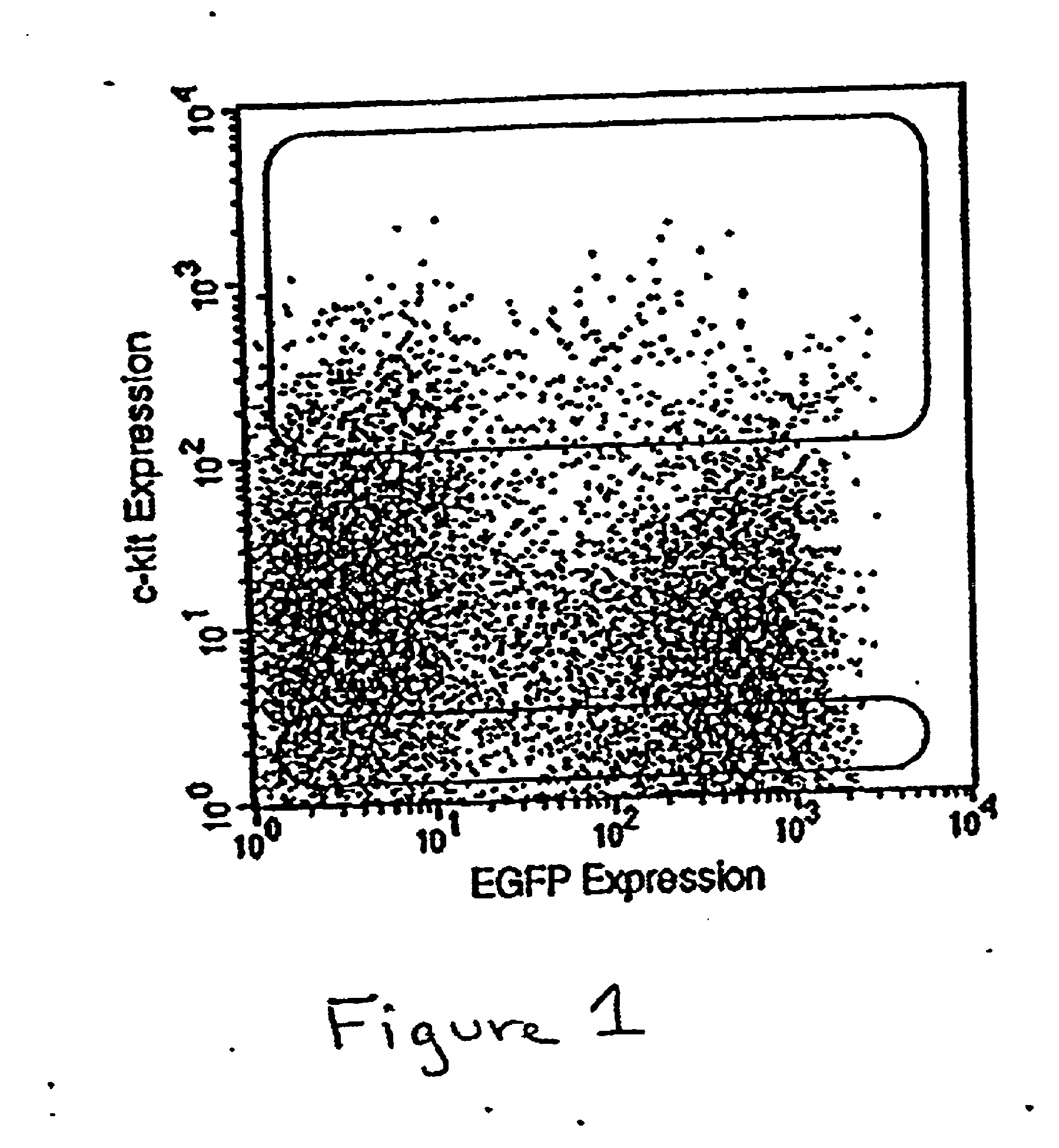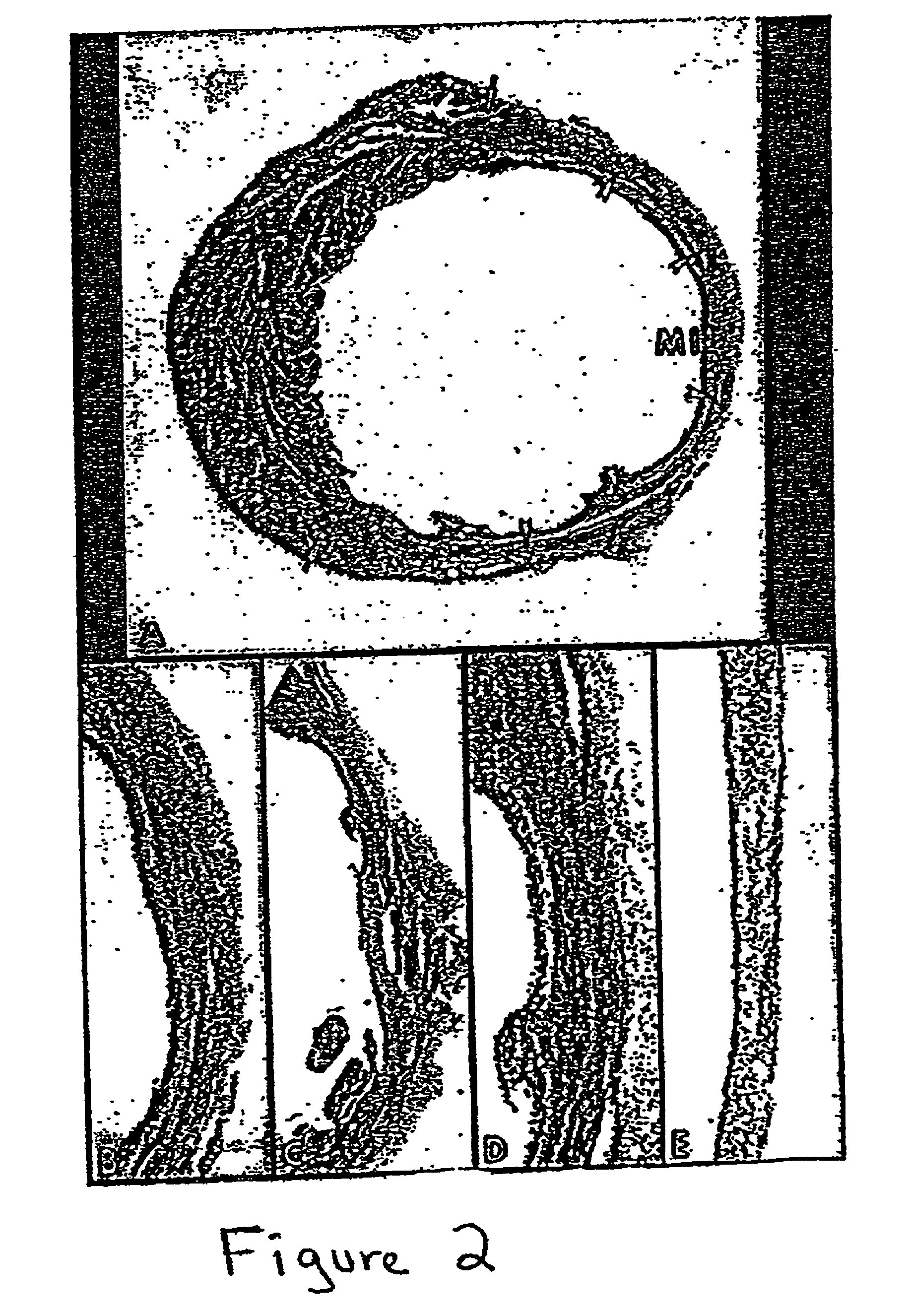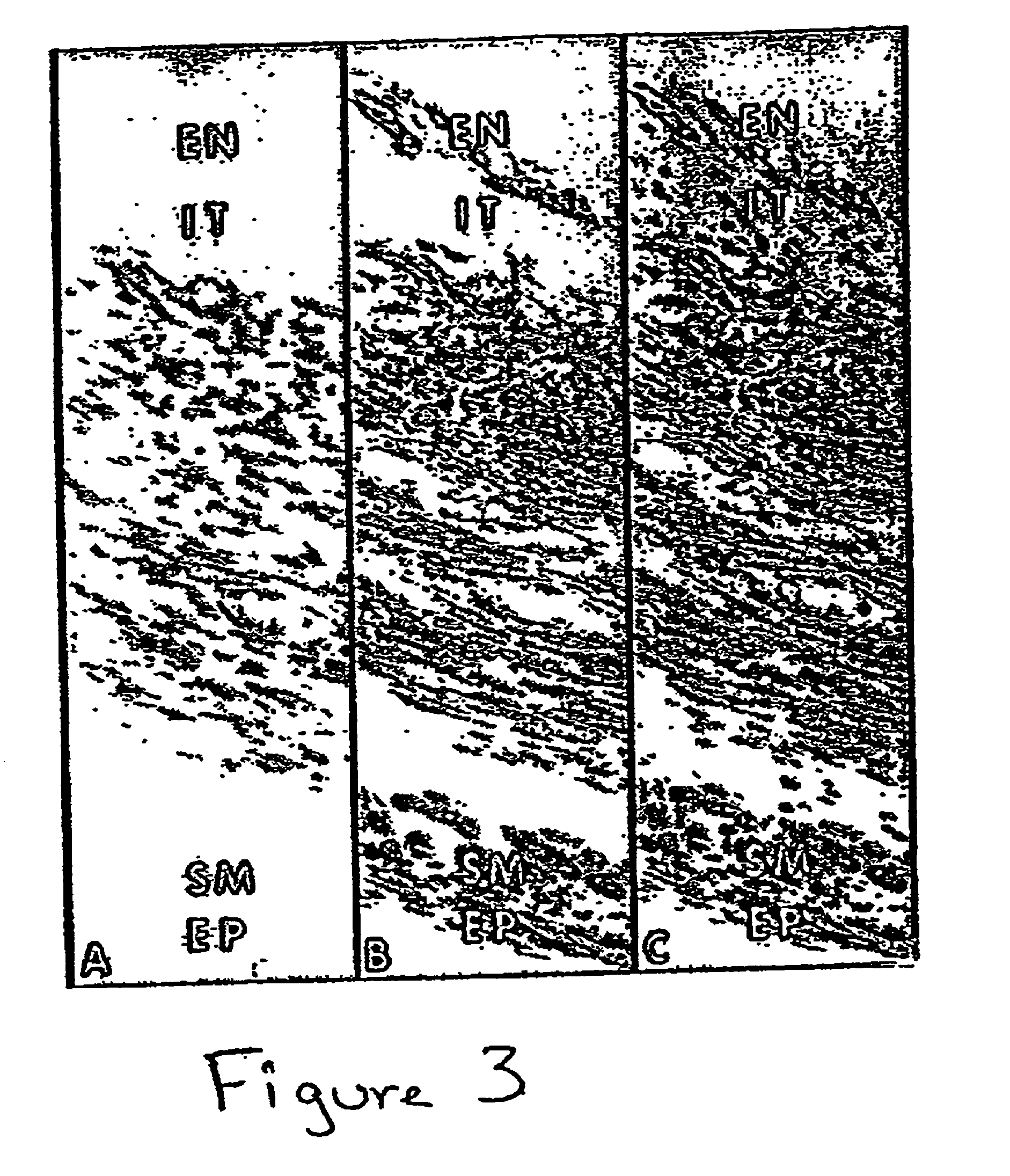Methods and compositions for the repair and/or regeneration of damaged myocardium
a technology of myocardium and composition, applied in the field of cardiac disease, can solve problems such as limited practicality, and achieve the effect of restoring the structural and functional integrity of the infar
- Summary
- Abstract
- Description
- Claims
- Application Information
AI Technical Summary
Benefits of technology
Problems solved by technology
Method used
Image
Examples
example 1
Hematopoietic Stem Cell (HSC) Repair of Infarcted Myocardium
[0268] A. Harvesting of Hematopoietic Stem Cells
[0269] Bone marrow was harvested from the femurs and tibias of male transgenic mice expressing enhanced green fluorescent protein (EGFP). After surgical removal of the femurs and tibias, the muscle was dissected and the upper and lower surface of the bone was cut on the surface to allow the collecting buffer to infiltrate the bone marrow. The fluid containing buffer and cells was collected in tubes such as 1.5 ml Epindorf tubes. Bone marrow cells were suspended in PBS containing 5% fetal calf serum (FCS) and incubated on ice with rat anti-mouse monoclonal antibodies specific for the following hematopoietic lineages: CD4 and CD8 (T-lymphocytes), B-220 (B-lymphocytes), Mac-1 (macrophages), GR-1 (granulocytes) (Caltag Laboratories) and TER-119 (erythrocytes) (Pharmingen). Cells were then rinsed in PBS and incubated for 30 minutes with magnetic beads coated with goat anti-rat im...
example 2
Mobilization of Bone Marrow Cells to Repair Infarcted Myocardium
[0285] A. Myocardial Infarction and Cytokines.
[0286] Fifteen C57BL / 6 male mice at 2 months of age were splenectomized and 2 weeks later were injected subcutaneously with recombinant rat stem cell factor (SCF), 200 μg / kg / day, and recombinant human granulocyte colony stimulating factor (G-CSF), 50 μg / kg / day (Amgen), once a day for 5 days (Bodine et al., 1994; Orlic et al., 1993). Under ether anesthesia, the left ventricle (LV) was exposed and the coronary artery was ligated (Orlic et al., 2001; Li et al., 1997; Li et al., 1999). SCF and G-CSF were given for 3 more days. Controls consisted of splenectomized infarcted and sham-operated (SO) mice injected with saline. BrdU, 50 mg / kg body weight, was given once a day, for 13 days, before sacrifice; mice were killed at 27 days. Protocols were approved by New York Medical College. Results are mean±SD. Significance was determined by the Student's t test and Bonferroni method (...
example 3
Migration of Primitive Cardiac Cells in the Adult Mouse Heart
[0304] To determine whether a population of primitive cells was present in the adult ventricular myocardium and whether these cells possessed the ability to migrate, three major growth factors were utilized as chemoattractants: hepatocyte growth factor (HGF), stem cell factor (SCF) and granulocyte monocyte colony stimulating factor (GM-CSF). SCF and GMCSF were selected because they have been shown to promote translocation of herriatopoietic stem cells. Although HGF induces migration of hematopoietic stem cells, this growth factor is largely implicated in mitosis, differentiation and migration of cardiac cell precursors during early cardiogenesis. On this basis, enzymatically dissociated cells from the mouse heart were separated according to their size. Methods for dissociating cardiac cells from heart tissue are well-known to those skilled in the art and therefore would not involve undue experimentation (Cf U.S. Pat. No. ...
PUM
| Property | Measurement | Unit |
|---|---|---|
| Fraction | aaaaa | aaaaa |
| Density | aaaaa | aaaaa |
| Density | aaaaa | aaaaa |
Abstract
Description
Claims
Application Information
 Login to View More
Login to View More - R&D
- Intellectual Property
- Life Sciences
- Materials
- Tech Scout
- Unparalleled Data Quality
- Higher Quality Content
- 60% Fewer Hallucinations
Browse by: Latest US Patents, China's latest patents, Technical Efficacy Thesaurus, Application Domain, Technology Topic, Popular Technical Reports.
© 2025 PatSnap. All rights reserved.Legal|Privacy policy|Modern Slavery Act Transparency Statement|Sitemap|About US| Contact US: help@patsnap.com



